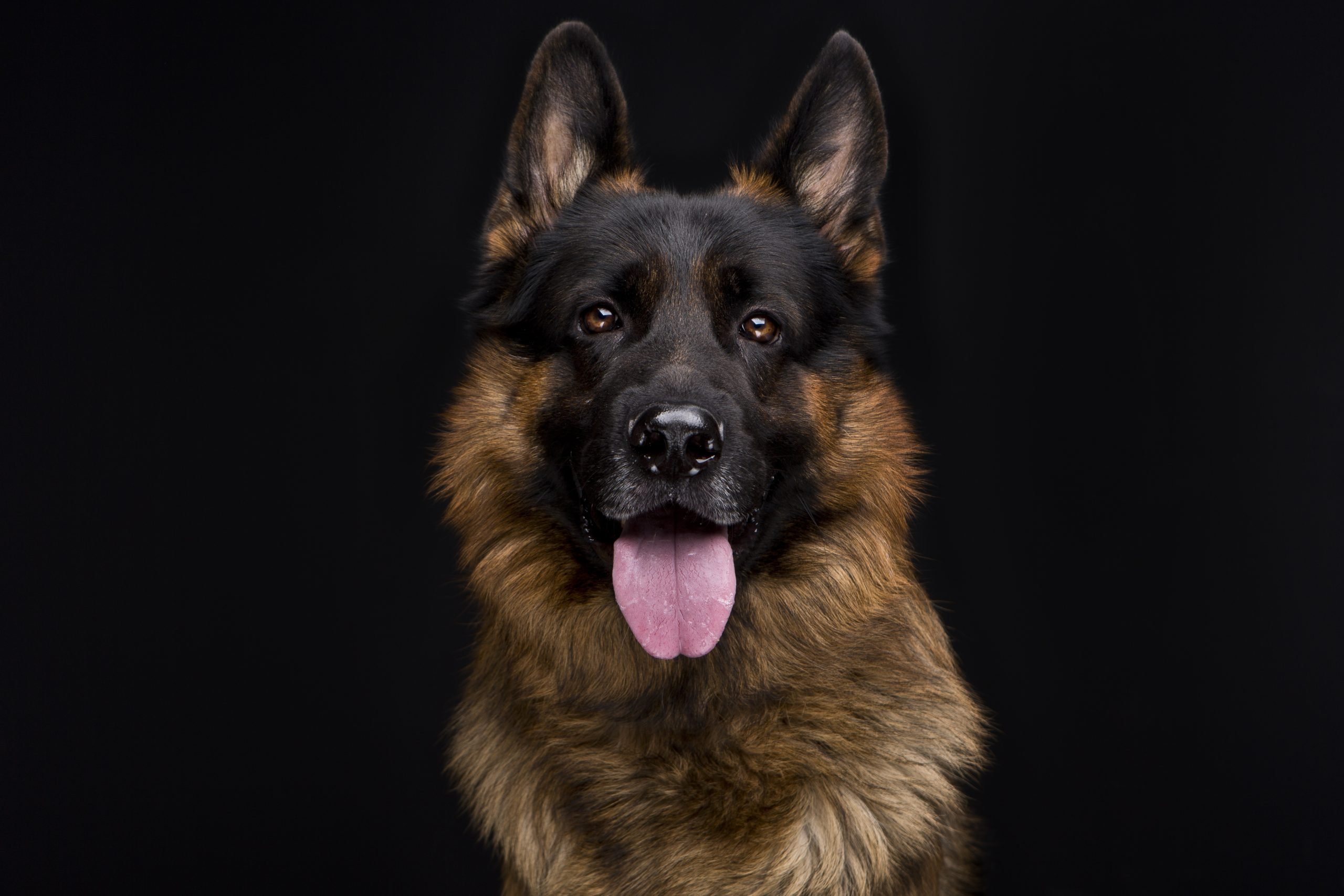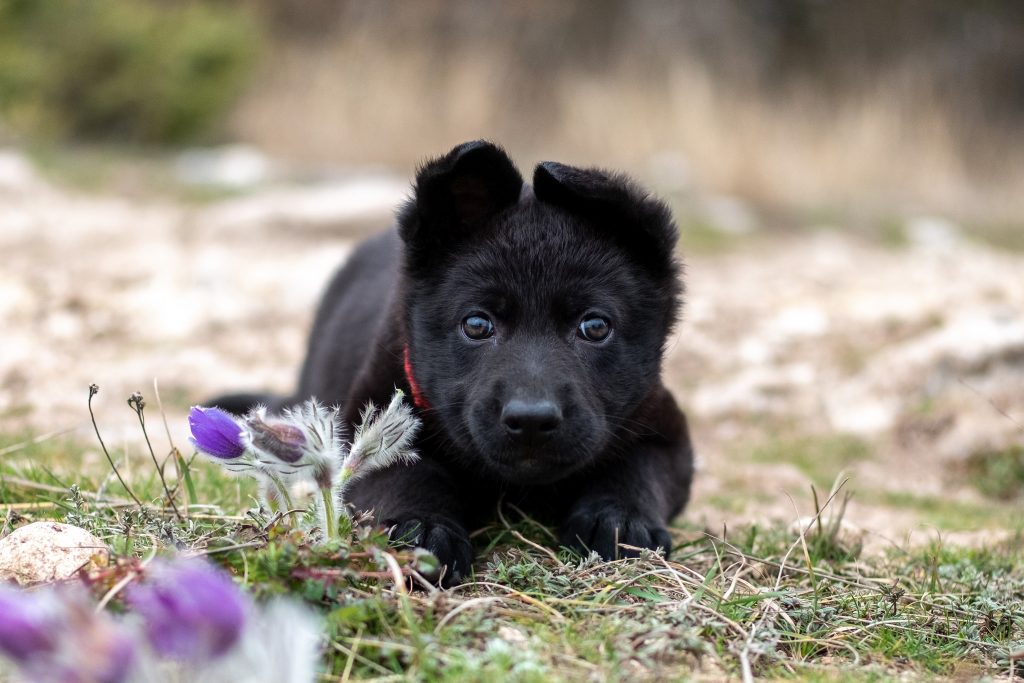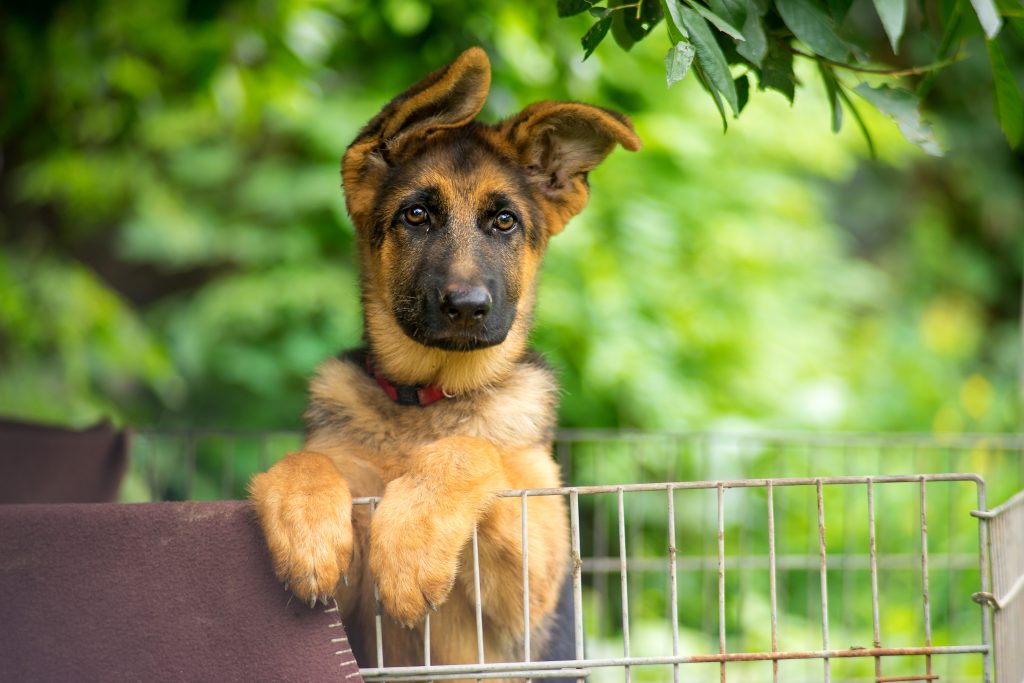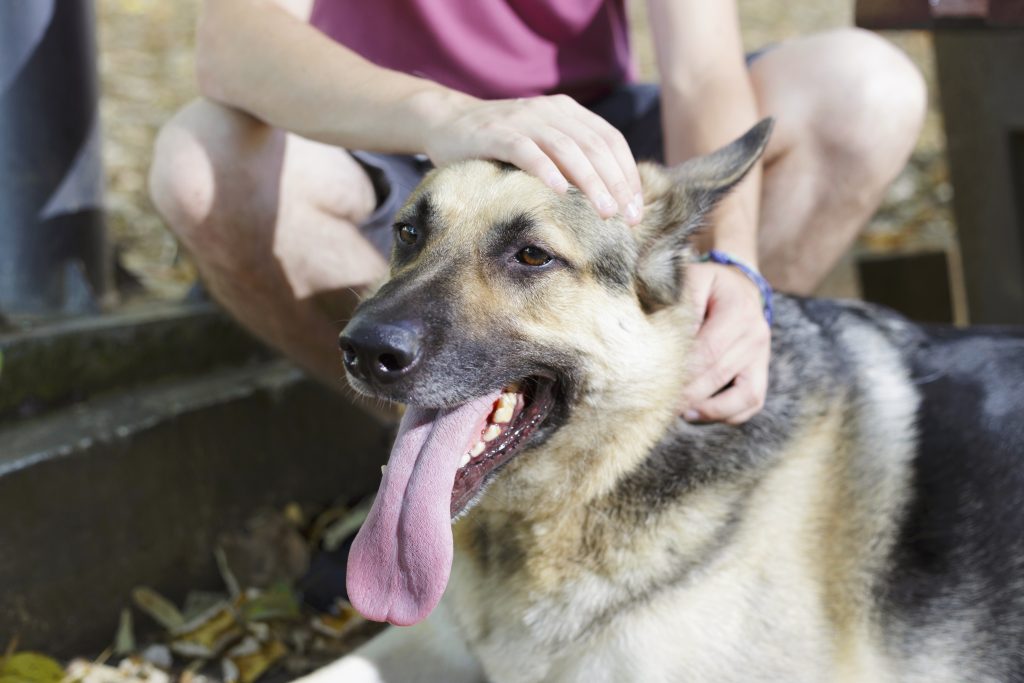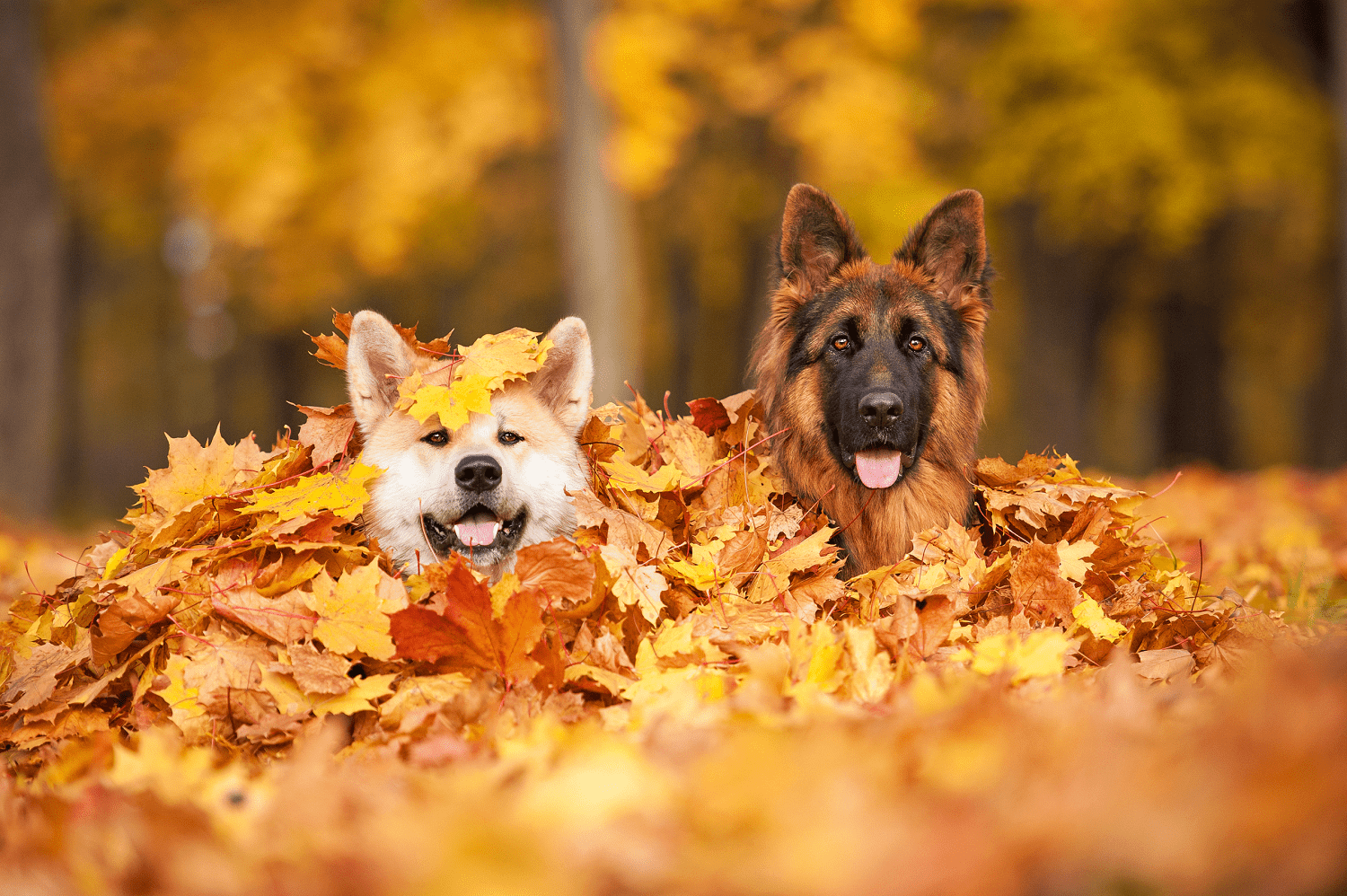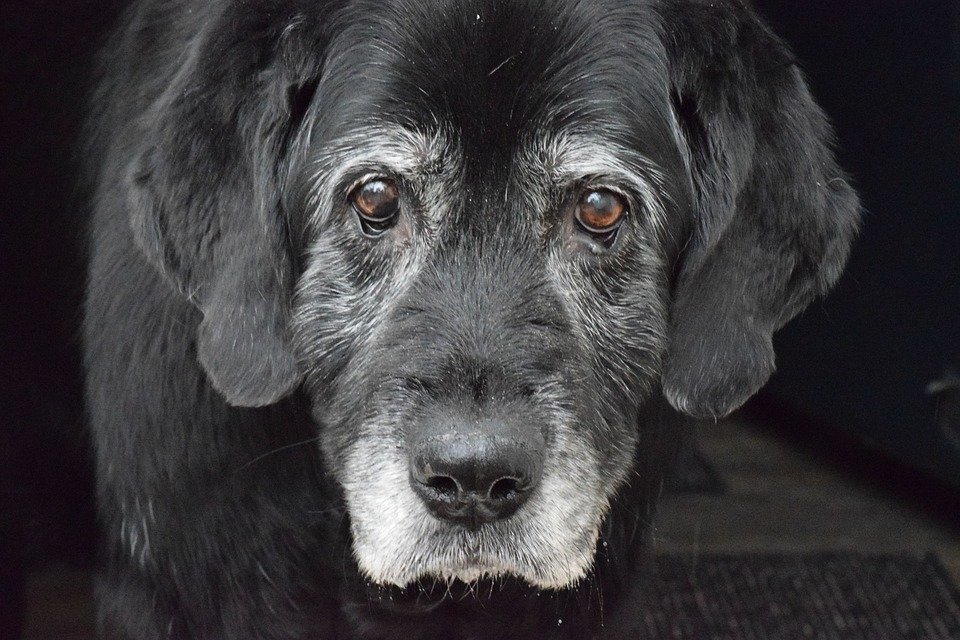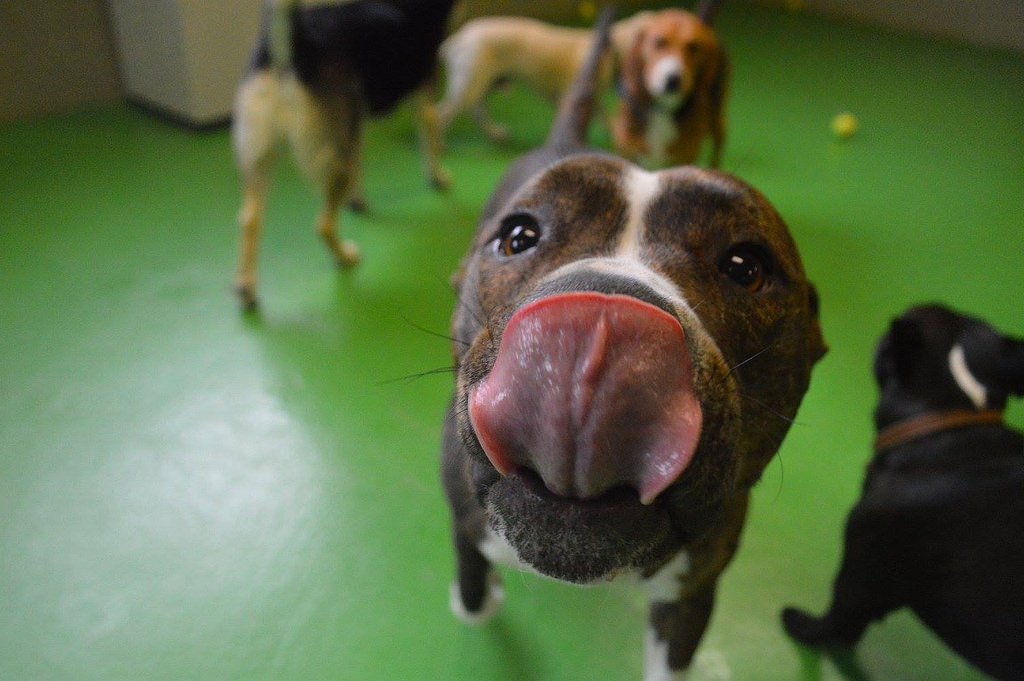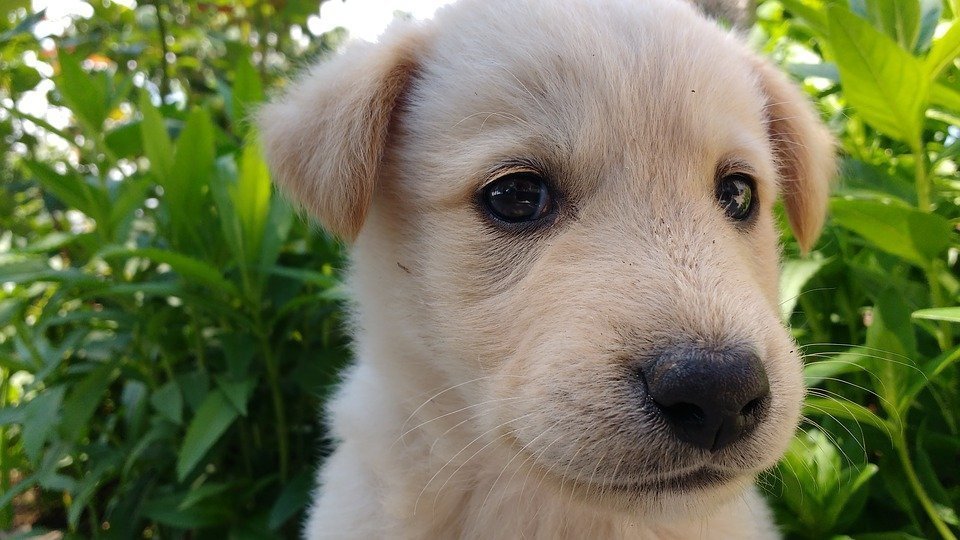This page contains affiliate links. This means that we may get a small commission for recommending products, if you choose to click on something and buy it. This does not cost you anything, but we wanted to be honest and let you know!
(Last Updated On: 6th August 2022)German Shepherds are known to be very intelligent, easy to train, protective, and obedient. This breed of dog is also known for its robust features and pointy ears. Many owners are surprised to see their ears floppy and droopy when bringing a German Shepherd puppy home. A common question that these new owners ask is this: when do German Shepherd’s ears stand up?
German shepherd ears do have stages. They naturally stand up on their own, but this will depend upon the pup’s development. In general, a German Shepherd puppy’s ears go up between 4 to 7 months of age. Sometimes, they will go up after the teething process when the puppy is about 20 months. Just like babies, the stages may be unique for different dogs. There are puppies whose ears stand up at a young age, but other puppies need help to have pointy ones.
Table of Contents
German Shepherd Ear Stages
As a new owner of a German Shepherd dog, you may wonder if your puppy is developing typically. If you read books or manuals and your puppy doesn’t quite fit the descriptions, don’t panic. If you also see that your dog’s ears remain wobbly after some stage, be patient. You should let the ears develop on their own and after some time, if you don’t see any difference, know that you can help in the process.
0-5 Months
German Shepherd puppy starts teething at about 3 months. During this process, the pup needs all the nutrition it needs to keep his body healthy. Its cartilages are soft as well at this point and still need many nutrients to erect. During the first 5 months, it is common for both ears to stand up and go down again. After the puppy finishes teething, the ears will usually stay erected.
5-6 Months
During this stage, your German Shepard puppy has usually made it through the teething stage. But remember that some late bloomers won’t finish teething until they are 8 months, so if you worry that your puppy’s ears are not standing up by this time, have the patient to wait a little more. You may check on the ears to see if they are starting to perk up.
6-8 Months
By this time, your German Shepherd puppy”s ears must be erected upright. If you see that they are not perky or still not standing up when it is about 8 months, then the possibility of them standing up likely diminished. There are many reasons for this, and you need not worry, but again, you can always help in the process.
Helping the German Shepherd ears stand up
There are many factors why your German Shepherd’s ears are not standing up. Usually, these factors are nothing major. Below are the following reasons.
Teething
As discussed above, during the teething process, your pup’s ear may stand up and go down again. This is very common among German Shepherd puppies as their cartilage on both ears is still developing. They are still getting all the nutrition they need to stand up permanently.
Genetics
Genes in dogs, like humans, are being passed as well. If their ears are floppy because their parents have floppy ears, then there’s nothing much you can do about it. Usually, German Shepherds have medium, pointy ears. But you may also notice others with larger ears and more robust features. This can also depend on the breeders. If you want your dog’s ears to stand up from the beginning, it will be helpful to ask your breeder about the pup’s parents and what they look like when they grow.
Trauma
Though not common, trauma can cause damages to a puppy’s ears. Too much petting or playing with the ears can cause this. There is nothing harmful in doing so but know that this can cause the ears to be permanently floppy. During teething or the development stage, make sure not to fond or play with your puppy’s ears too much. If you have little children with you in the house, who like to play with the puppy, make sure to remind them not to touch the ears.
Other Ear Conditions.
If you think that your puppy’s genes have upright ears and it has finished teething, but the ears are not yet standing up, it’s time to look for other factors. First, you may check for any infections to the ears. Ear infections can be dangerous and affect the process on which your puppy’s ears stand up. You may also check if your pups are dealing with painful parasites that take their nutrients in the body away. Remember that these nutrients are vital to the ears’ development as well. When in doubt, make sure to bring your pup to a doctor and have it treated.
According to experts, if by 7 months, your puppy’s ears are still floppy, then they might not perk up at all. During this time, you may try simple ways to help make the ears stand up. Read below.
Avoid playing with the ears. Their ears are very sensitive, and constant playing and rubbing when they are still young can significantly affect the ears’ developmental process.
Give strong toys. During teething, you can help by giving strong toys to chew to your puppy. This will help strengthen the muscles of the jaw and ears.
Provide proper nutrition. Give food that is healthy and high in calcium and protein to help develop bones and muscles, including the ears.
Have regular check-ups. The first 8 months are very crucial in the puppy’s development. During this process, make sure to regularly bring your pup to the vet to see if they are developing typically or to check other conditions that may affect the body’s development, including the ears.
Generally, every German Shepherd puppy goes through various developmental processes. Not all puppies are the same. Some German Shepherds have different behavior from others. Some are more alert or playful. Though there is a chart to help you determine if your puppy is on track, know that you should not really worry about their ears being floppy when your puppy is well.
Ian is an avid outdoorsman and dog lover. He lives in Central Florida with his wife Heather, and their 2 dogs – Panda (Purebread Rough Collie X English Golden Retriever) & Kuma (Blue Merl Purebread Rough Collie)
